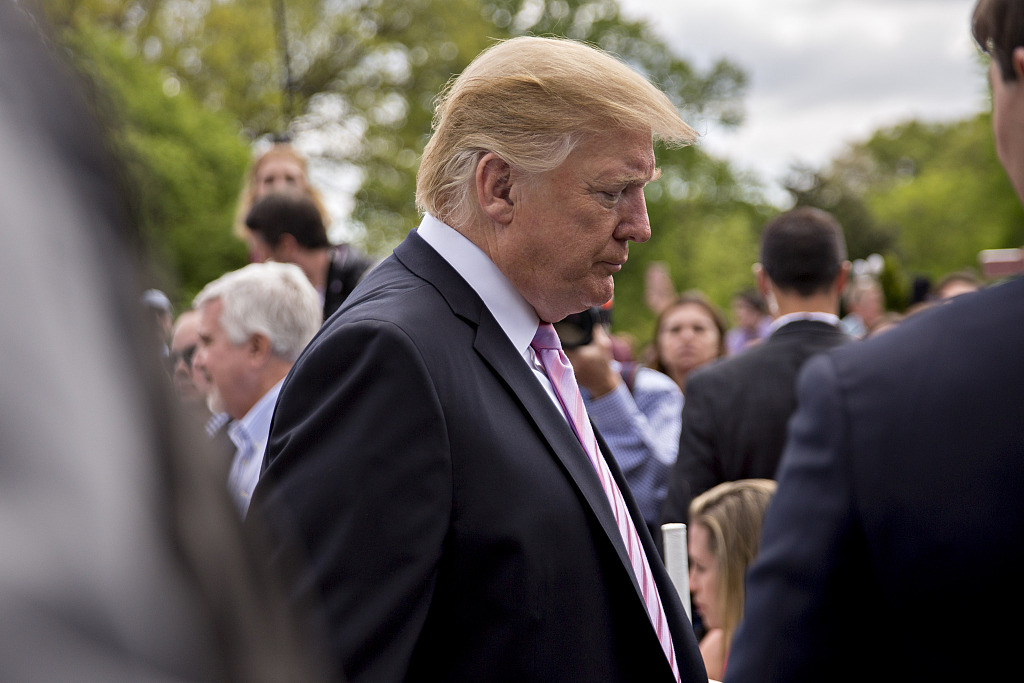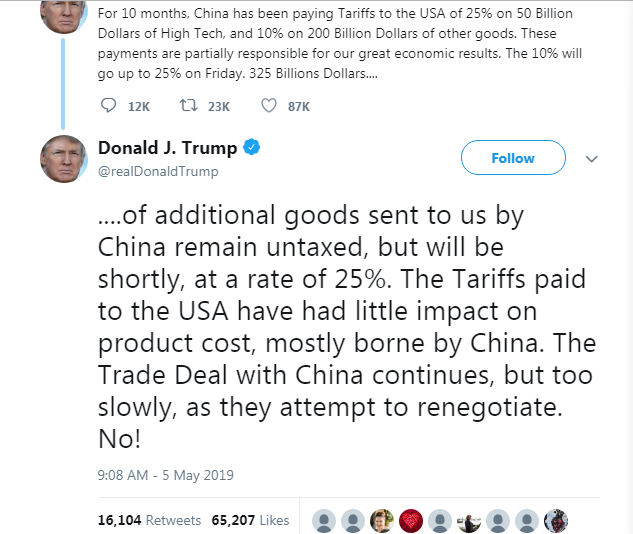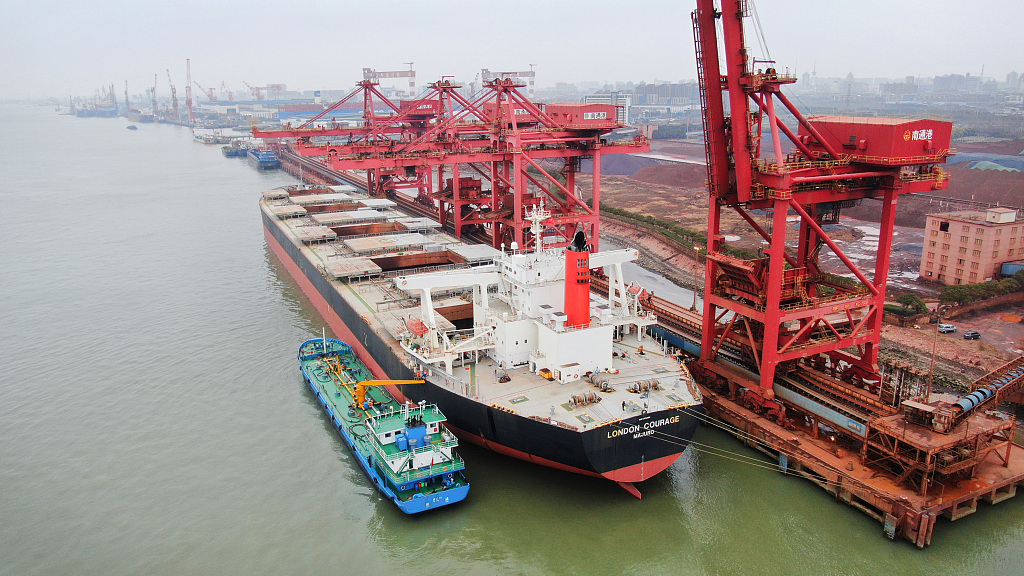
US President Donald Trump leaves after participating in the Easter Egg Roll on the South Lawn of the White House in Washington, D.C., US, on Monday, April 22, 2019. (File photo: VCG)
It often seems as though Donald Trump goes out of his way to openly defy conventional wisdom. He did just that when he recently took to social media to announce a new wave of expanded tariffs on Chinese imports to the United States. Although Trump leveling new import tariffs is something that the world has become accustomed to, the fact that he did so prior to what many felt would be a springtime end to his so-called trade war on China left many bemused.
To be certain, Trump's tariff increase on Chinese goods at this late stage in trade talks is a calculated provocation but it cannot have any long-term impact unless it elicits the overreaction that Trump is trying to provoke.
In many respects, an element of Trump's public persona is similar to the online phenomenon known as “trolling.” Many social media observers have defined trolling as an activity in which one intentionally posts something outrageous or absurd in order to provoke an overreaction from those mistaking the trolling for an honest expression.

(Screenshot)
Applying similar strategies to discourse regarding important relations with a foreign state is an unconventional strategy and one that carries with it a measure of risk. For those on the receiving end of Trump's unconventional provocations, the best strategy is to react in a proportional manner and most crucially in a way that does not upset the overall trajectory of bilateral relations.
For China-US bilateral relations, ending Trump's trade war on a win-win basis remains a priority. In this sense, it is helpful to remember that even before Donald Trump was elected US president, China was moving rapidly toward further reform and opening up in multiple important areas. In the drive to create a moderately prosperous society in all respects, China sought to increase imports by enacting policies friendly to ever freer trade with partners from around the world.
China also sought to attract ever more foreign direct investment by streamlining and modernizing old legislation. Finally, China sought to open up its financial markets to ever more global investment connectivity.

Nantong Port in Jiangsu Province. (File photo: VCG)
These goals which existed prior to the trade war are now matters of daily life for those trading with and doing business in China. To put it in a different way, China is doing of its own accord that which Trump and those of his political tradition claimed they had always wished China would do.
It is unhelpful when one changes the rules of a game in the middle of play. But by criticizing Chinese economic openness and transparency after years of proffering highly exaggerated slurs about how China's economy was allegedly closed, those of a nationalistic economic mentality in countries like the US and elsewhere are revealing their own inconsistency.
The only way to counter inconsistency or strange “surprises” such as Trump's new tariffs is to remain consistent and focused sharply on one's initial goal. This is what China has done throughout the so-called trade war and this is not likely to stop just because of Trump's last minute tariff hikes.
China has every right to express its views about Trump's decision but Chinese officials will almost certainly make their views known first in private before releasing an update through official channels. China will also likely react in an appropriate fashion but if one is prone to believe that China will react by adopting a strategy as extreme as Trump's, such a person is clearly mistaken.
When viewed from the broadest perspective, China will continue to do what it was already doing. This includes pursuing ever more reform and opening up in terms of trade, financial services and foreign direct investment.
By trying to force a delay in the finalization of a trade agreement, Donald Trump is only hurting those in the US who want to get more of their goods into China's vast market. The overall message is that China is ready to speak in a realistic manner just as soon as Trump and his colleagues are willing to do the same.
Adam Garrie is the director of the UK-based global policy and analysis think tank Eurasia Future and co-host of talk show "The History Boys."


